Planting Bare Root Trees for Beauty and Bounty
March 23, 2017Your Bare Root Tree Essentials
Depending on where you live in the Northwest, now could be the right time to plant some bare root trees. Whether you choose an ornamental variety, or something that produces fruits or nuts, trees can be a beautiful and fruitful addition to your land – especially when canning season comes around again.
Pick the Right Tree
Altitude and climate can play a key role in the types of trees that will grow best in your region. Typically, lower elevations and valleys are great for apples, apricots, cherries, chestnuts, figs, hazelnuts, peaches, pears, plums and walnuts. Higher elevations, including more arid areas are better suited to prunes and plums, walnuts, butternuts, as well as some cherries and apples. If you’re not sure what to plant, just swing by your nearby Coastal. Our employees know the area and can steer you in the right direction.Once you have a tree (or two), here’s how to plant it.
Give Your Tree a Big Drink
Remove the tree from the packaging and soil. Don’t damage any of the roots. Place the tree into a bucket of water for 3-6 hours. Pre-soaking the roots will help stimulate the growth of smaller, hair-like roots. IMPORTANT: Keep the soil contents of the packaging.
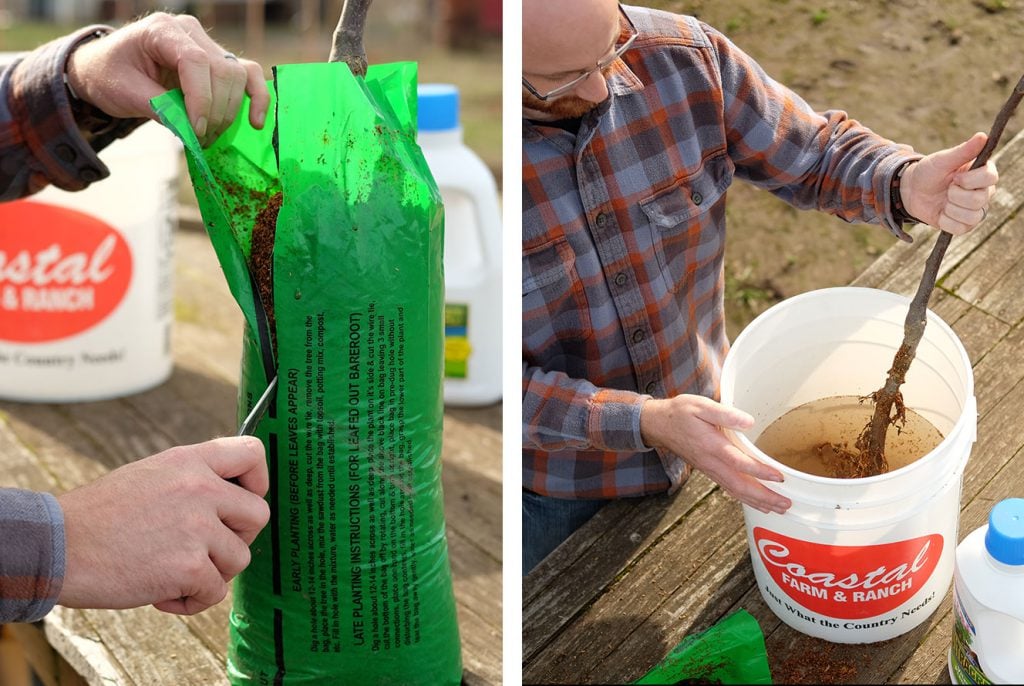
Dig a Hole
While the trees are pre-soaking, it’s time to start digging. Create a hole that has a shallow bowl or saucer shape. The hole needs to be twice as wide as the spread of the roots.
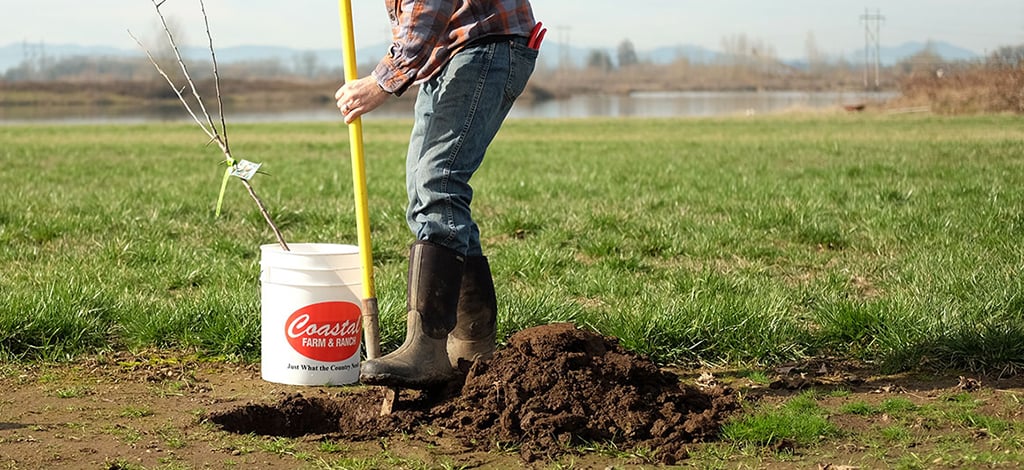
Gauge the Right Depth
Hole depth depends on your tree. Take a look at the bark near the base of the tree. You should see a soil line or graft. Place a stick across your planting hole and set your tree into it. Carefully spread the roots around the hole. The soil line on the bark of the tree should sit about an inch above the stick. You may need to mound some dirt up in the center of the hole to raise the tree up to the appropriate height.
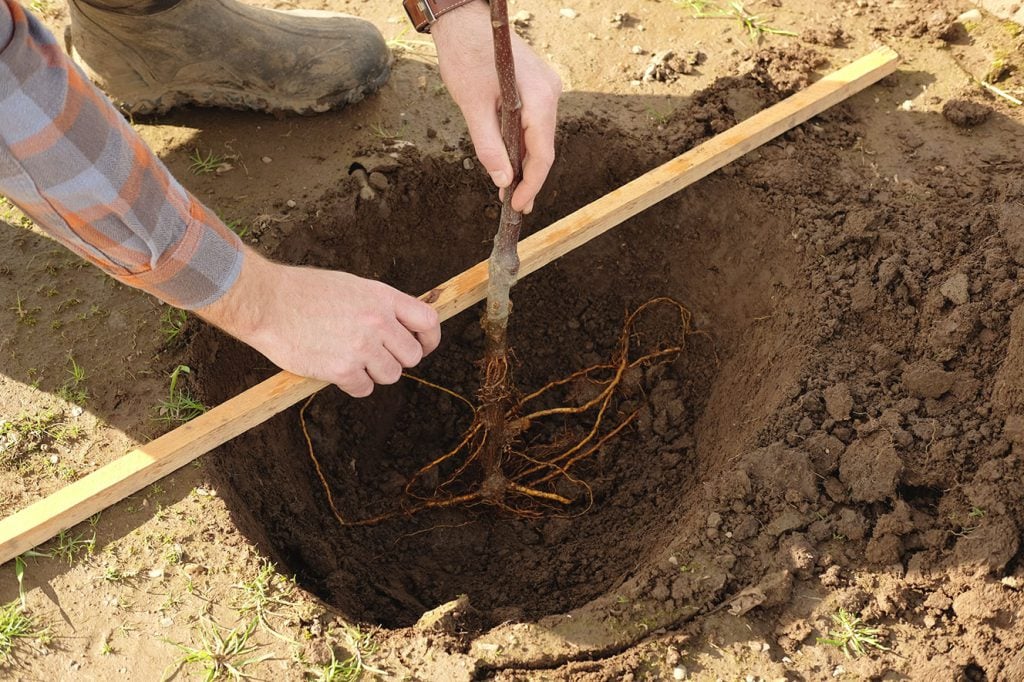
Kickstart Proper Growth
To help your new tree get a jump on life, we recommend watering your tree with 2 tablespoons of vitamin B1 per 1 gallon of water. First, cover the roots with dirt, making sure they have good contact with the soil. Then pour in half of your B1 mixture, making sure to soak all the soil that is covering the roots. Continue adding your soil back into the planting hole until it is almost filled. Then go ahead and add the rest of your B1-Water to the tree. This will help jump start root growth and give it the foundation it needs for a productive life.
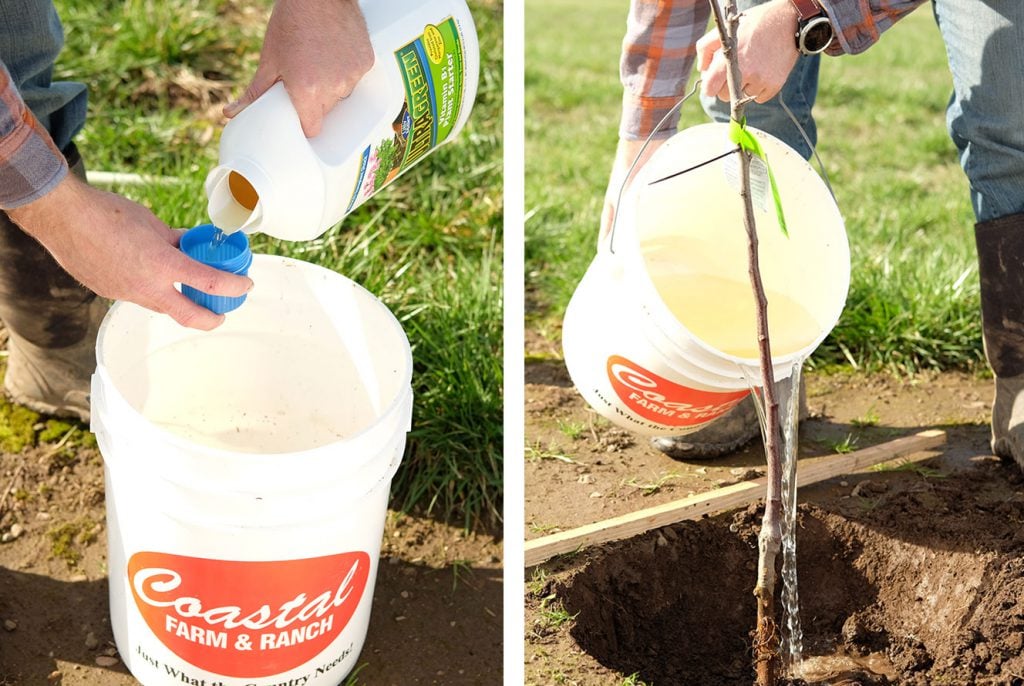
Fill’er Up
Add the rest of your soil back into the planting hole. Be gentle and keep the soil a little bit loose. You’ll want to protect the delicate roots and provide enough space for water to penetrate the soil. Also, make sure your tree doesn’t settle with the weight of the soil.
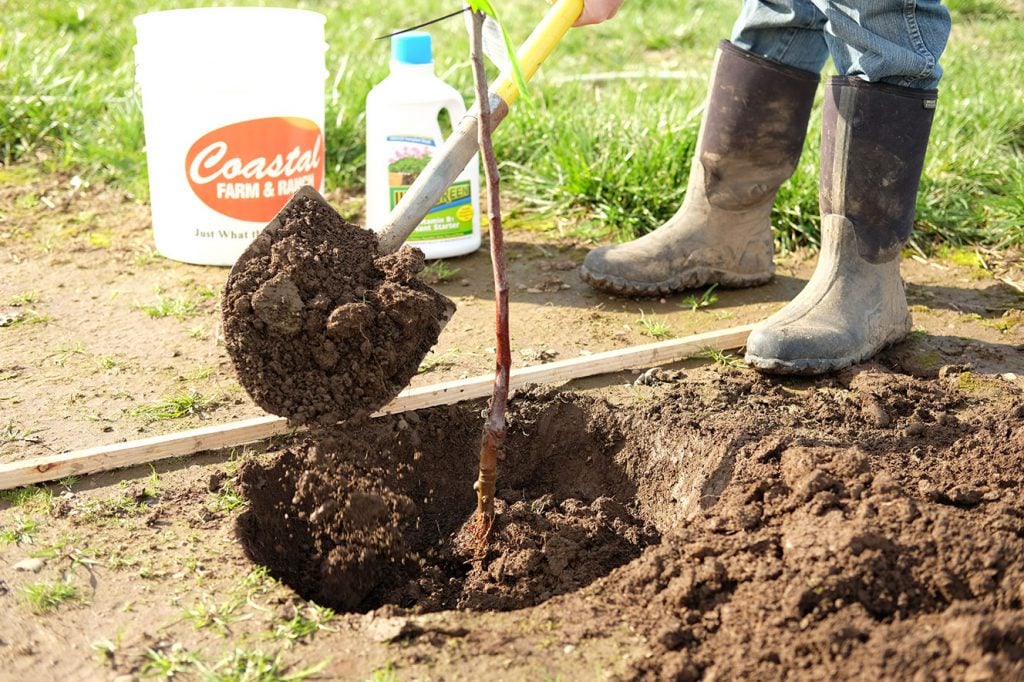
Add the Mulch
Once you’ve got the soil in, top it off with the mulch from the package. This will help hold moisture. It also gives your tree some added nutrients.
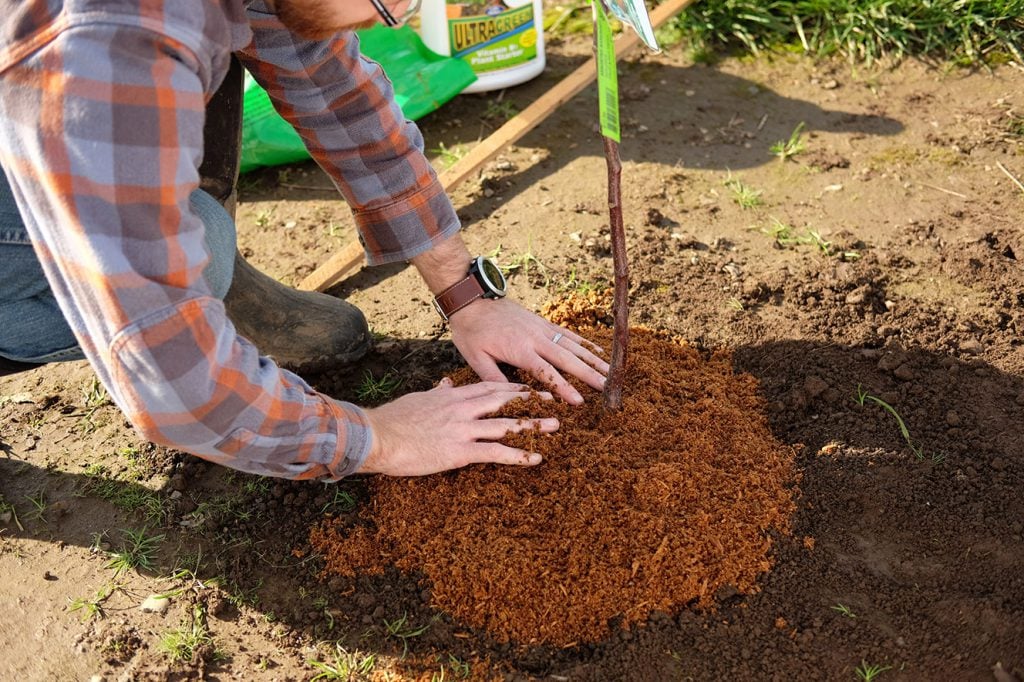
Give Your New Tree a Trim
With your tree in the ground and secured to a stake, trim a little off the top. Be sure to trim just above fruit spurs at an angle. This will help stimulate growth of fruit bearing branches and keep the tree from diverting nutrients to less important branches.
Coastal tip: check out our Tree Pruning Tips and Tricks where you’ll learn how to prune your trees with confidence.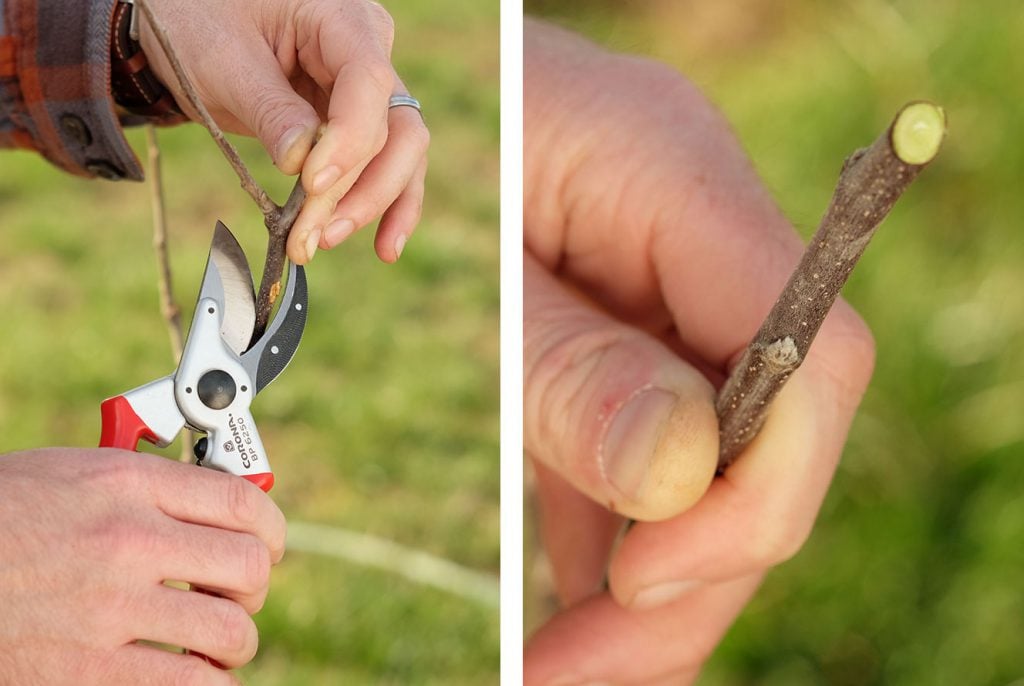
Ongoing Maintenance
During the first five years after you plant, you’ll want to watch your new trees closely. As long as you properly water, prune, mulch, and fertilize, you should enjoy your new trees for decades to come.
Care for Your Trees at Coastal
You’ll find the people and products for your lawn, garden, and trees at your nearby Coastal. That includes pruners, fertilizers, sprayers, irrigation, seeds, mowers, blowers, shovels, and power tools. Just stop by and talk to us about your tree planting plans. We’ll make sure you go home with everything you need.
